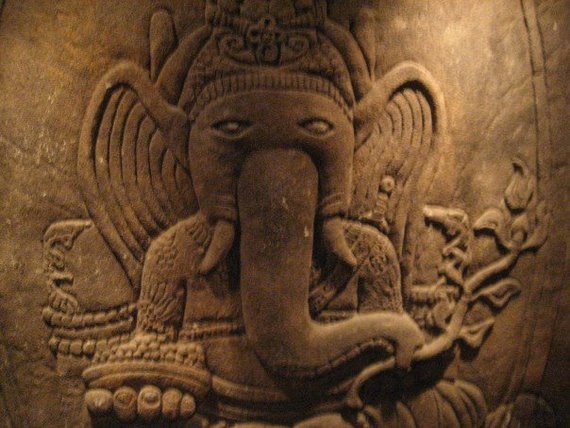
i am for almost ANYTHING that could potentially decrease the indiscriminate power, secrecy, and hypocrisy of the ncaa, esp with regards to its 2 cash cows: college football and basketball. therefore, this lawsuit brings me joy.
dayofthefight@gmail.com


Recently, several news articles have incorrectly stated that the U.S. will be relaxing or lifting its ban on Scottish haggis. At this time, haggis is still banned in the U.S. The APHIS rule covers all ruminant imports, which includes haggis. It is currently being reviewed to incorporate the current risk and latest science related to these regulations. There is no specific time frame for the completion of this review. Please check back with APHIS periodically for updates.

(1) "Superb movies which deserve to be included on the list":
(2) "Very good movies but PROBABLY not deserving of inclusion":
(3) "Decent movies but NOT worthy of inclusion":
(4) "DEFINITELY not worthy of inclusion":
(5) Movies I have not seen but REALLY want to:
Maybe it ain’t so, Joe. For 90 years the reputation of Chicago White Sox outfielder "Shoeless" Joe Jackson has been tarnished by the belief that he and seven of his teammates threw the 1919 World Series to the Cincinnati Reds. The Black Sox scandal was seemingly validated by Eliot Asinof’s historical account, Eight Men Out.
In 1921, a Chicago jury acquitted [Joe] and his seven White Sox teammates of any wrongdoing. Nevertheless, Kenesaw Mountain Landis, the newly-appointed Commissioner of Baseball, banned all eight accused players, claiming baseball's need to clean up its image took precedence over legal judgments. As a result, Jackson never played major league baseball after the 1920 season.
During the series, Jackson had 12 hits and a .375 batting average — in both cases leading both teams. The 12 hits were a World Series record. He committed no errors and even threw out a runner at the plate. Jackson did bat worse in the five games that the White Sox lost, hitting .286, with no RBIs until the final contest, Game 8, when he hit a home run in the 3rd inning and added two more RBIs on a double in the 8th, when the White Sox were way behind. This does not appear to be a valid argument, since Jackson only hit .066 in the four games of the 1917 World Series in which the White Sox either lost to or did not tromp the New York Giants. It is often said that the Cincinnati Reds hit an unusually high number of triples to left field where Jackson played during the series. This is not supported by the contempory newspaper accounts. According to first hand accounts, none of the triples were hit to left field

American Needle sued the league and Reebok in 2004, claiming the deal violated antitrust law. Lower courts threw out the suit, holding that nothing in antitrust law prohibits NFL teams from cooperating on apparel licensing so the league can compete against other forms of entertainment.
But in what sports fans would call "running up the score," the NFL is asking the Supreme Court to review the case in hopes of getting a blanket antitrust exemption that could eliminate most, if not all, the antitrust suits against the league.
"It was an odd request - similar to my asking an official to review an 80-yard pass of mine that the official had already ruled a touchdown," New Orleans Saints quarterback Drew Brees wrote in The Washington Post. Brees serves on the executive committee of the NFL Players Association.
 needless to say, the release of georgie's favorite music of the past calendar year has a similar impact on the music industry as the yearly publication of the michelin guide on the restaurant business. hopefully, unlike in years past, an exclusion from this list will only engender minor bodily injuries and tepid attempts at character assassination.
needless to say, the release of georgie's favorite music of the past calendar year has a similar impact on the music industry as the yearly publication of the michelin guide on the restaurant business. hopefully, unlike in years past, an exclusion from this list will only engender minor bodily injuries and tepid attempts at character assassination.C'était un Rendez-Vous from Thom Graves on Vimeo.
 2008 was a solid (but not great) year in music. The biggest theme for me was the arrival of several fantastic new bands. The first albums by Fleet Foxes, Frightened Rabbit, and Bon Iver were some of my favorites of the year. Noteworthy discoveries of bands that I did not know prior to this year (and who produced solid albums in 2008) included Thievery Corporation, MGMT, DeVotchKa, The Black Keys, The Walkmen, and Blitzen Trapper. The depth of new material, however, was not as good as last year or most years from the past decade.
2008 was a solid (but not great) year in music. The biggest theme for me was the arrival of several fantastic new bands. The first albums by Fleet Foxes, Frightened Rabbit, and Bon Iver were some of my favorites of the year. Noteworthy discoveries of bands that I did not know prior to this year (and who produced solid albums in 2008) included Thievery Corporation, MGMT, DeVotchKa, The Black Keys, The Walkmen, and Blitzen Trapper. The depth of new material, however, was not as good as last year or most years from the past decade. i just saw the movie "choke," and it was very funny and insightful. sam rockwell, in the lead role, was fantastic. this movie is very sexually-explicit. do not go see it if you (or others who might go with you) are easily bothered by such material, but the sex is used primarily as humor and is not disgusting in any pornographic way. do not believe rotten tomatoes, which only has this movie at a 56% approval rating, or roger ebert, who only gave it 2.5 stars out of 4. these two often-reliable sources have it wrong when it comes to this movie. the characters are believable, and the psychological puzzle is intricate.
i just saw the movie "choke," and it was very funny and insightful. sam rockwell, in the lead role, was fantastic. this movie is very sexually-explicit. do not go see it if you (or others who might go with you) are easily bothered by such material, but the sex is used primarily as humor and is not disgusting in any pornographic way. do not believe rotten tomatoes, which only has this movie at a 56% approval rating, or roger ebert, who only gave it 2.5 stars out of 4. these two often-reliable sources have it wrong when it comes to this movie. the characters are believable, and the psychological puzzle is intricate. there are very few things that i do very well in life, but there is one thing that i think i excel at: city-walking.
there are very few things that i do very well in life, but there is one thing that i think i excel at: city-walking.
 i have developed a hatred for the mockingbird, and i now understand why harper lee chose the title of her famous novel.
i have developed a hatred for the mockingbird, and i now understand why harper lee chose the title of her famous novel.
 2) the dark knight: believe the hype! it is not an overstatement to say that heath ledger outdid jack nicholson's 'joker' performance in the original batman. this movie exceeded my already-high expectations. this is probably my favorite superhero movie of all time. go see it on the big screen! ledger stole the show with his scary, funny, smart, and believable portrayal. his death is a loss to us all. it will not merely be a publicity stunt if ledger wins a posthumous oscar for this role. christian bale was slightly disappointing, but his character was very well scripted and even more complex than it was in 'batman begins,' which was also a very good movie.
2) the dark knight: believe the hype! it is not an overstatement to say that heath ledger outdid jack nicholson's 'joker' performance in the original batman. this movie exceeded my already-high expectations. this is probably my favorite superhero movie of all time. go see it on the big screen! ledger stole the show with his scary, funny, smart, and believable portrayal. his death is a loss to us all. it will not merely be a publicity stunt if ledger wins a posthumous oscar for this role. christian bale was slightly disappointing, but his character was very well scripted and even more complex than it was in 'batman begins,' which was also a very good movie.
 i went to see the savages last night and thoroughly enjoyed it. phillip seymour hoffman and laura linney were amazing as usual, and i'm glad i knew NOTHING about this movie before i went to see it because i probably would not have gone had i known the primary subject matter of the movie. the movie is almost exclusively about a brother and sister dealing with their father who is suffering from dementia and who is incapable of living on his own. the decision as to whether to place the man in a retirement home and how to interact with a person who is often in another world is so morose, but despite this subject matter, this movie was actually very, very funny. if you have seen it, please let me know, and we can further discuss.
i went to see the savages last night and thoroughly enjoyed it. phillip seymour hoffman and laura linney were amazing as usual, and i'm glad i knew NOTHING about this movie before i went to see it because i probably would not have gone had i known the primary subject matter of the movie. the movie is almost exclusively about a brother and sister dealing with their father who is suffering from dementia and who is incapable of living on his own. the decision as to whether to place the man in a retirement home and how to interact with a person who is often in another world is so morose, but despite this subject matter, this movie was actually very, very funny. if you have seen it, please let me know, and we can further discuss.

Early in “There Will Be Blood,” an enthralling and powerfully eccentric American epic (opening on December 26th), Daniel Plainview climbs down a ladder at his small silver mine. A rung breaks, and Daniel (Daniel Day-Lewis) falls to the base of the shaft and smashes his leg. He’s filthy, miserable, gasping for breath and life. The year is 1898. Two and a half hours later (and more than thirty years later in the time span of the film), he’s on the floor again, this time sitting on a polished bowling lane in the basement of an enormous mansion that he has built on the Pacific Coast. Having abandoned silver mining for oil, Daniel has become one of the wealthiest tycoons in Southern California. Yet he’s still filthy, with dirty hands and a face that glistens from too much oil raining down on him—it looks as if oil were seeping from his pores. The experience chronicled between these two moments is as astounding in its emotional force and as haunting and mysterious as anything seen in American movies in recent years. I’m not quite sure how it happened, but after making “Magnolia” (1999) and “Punch-Drunk Love” (2002)—skillful but whimsical movies, with many whims that went nowhere—the young writer-director Paul Thomas Anderson has now done work that bears comparison to the greatest achievements of Griffith and Ford. The movie is a loose adaptation of Upton Sinclair’s 1927 novel “Oil!,” but Anderson has taken Sinclair’s bluff, genial oilman and turned him into a demonic character who bears more than a passing resemblance to Melville’s Ahab. Stumping around on that bad leg, which was never properly set, Daniel Plainview—obsessed, brilliant, both warm-hearted and vicious—has Ahab’s egotism and command. As for Daniel Day-Lewis, his performance makes one think of Laurence Olivier at his most physically and spiritually audacious.
At the start, Daniel and a small group of workers, wildcatting for oil, give themselves entirely to their perilous labor. There isn’t a word of dialogue. Again and again, Anderson creates raptly muscular passages—men lifting, hauling, pounding, dragging, working silently in the muck and viscous slime. Yet this film is hardly the kind of glory-of-industry documentary that bored us in school. “There Will Be Blood” is about the driving force of capitalism as it both creates and destroys the future, and the film’s tone is at once elated and sickened. A dissonant, ominous electronic wail, written by the Radiohead guitarist and composer Jonny Greenwood, warns us of trouble ahead. Once the derricks are up, Greenwood imitates the rhythmic thud of the drill bits and pumps with bustling passages of plucked strings and pounding sticks. “Blood” has the pulse of the future in its rhythms. Like the most elegiac Western, this movie is about the vanishing American frontier. The thrown-together buildings look scraggly and unkempt, the homesteaders are modest, stubborn, and reticent, but, in their undreamed-of future, Wal-Mart is on the way. Anderson, working with the cinematographer Robert Elswit, has become a master of the long tracking shot across still, empty landscapes. The movie, which cost a relatively cheap twenty-five million dollars to make, has gravity and weight without pomp; it’s austerely magnificent, and, when violence comes—an exploding oil well, a fight—it’s staged cleanly, in open space, and not as a tumult of digital effects or a tempest in an editing room.
One of the workers holds and kisses a baby, then dies in an accident, and Daniel raises the child, whom he calls H.W. (Dillon Freasier), as his son and partner. The movie skips to 1911, when Daniel and H.W. are travelling around California in a tin lizzie, buying up land leases, at bargain rates, from ranchers and farmers who are sitting on underground oceans of gold. Daniel takes advantage of their ignorance to pay them less than they deserve, and, as he addresses a group of them, Day-Lewis’s performance comes into focus. He lowers his chin slightly, and his dark eyes dance with merriment as he speaks in coarse yet rounded tones, the syllables precisely articulated but with a lengthening of the vowels and final consonants that gives the talk a singing, almost caressing quality. It is the voice of dominating commercial logic—an American force of nature. Day-Lewis, at fifty, is lean and fit, and his scythe-like body cuts into the air as he works or stalks, head thrust out, across a field. Much of the time, he projects a wonderful gaiety, but his Daniel never strays from business. He ignores questions, reveals nothing, and masters every encounter with either charm or a threat. He has no wife, no friends, and no interests except for oil, his son, and booze. He drinks heavily, which exacerbates his natural distrust and competitiveness. Even when he’s swimming in the Pacific, he looks dangerous. In his later years, however, Daniel disintegrates, and the iconic associations shift from Ahab to Charles Foster Kane.
Upton Sinclair was a longtime socialist, yet he understood that nothing in American life was more exhilarating than entrepreneurial energy and ruthlessness. The movie retains the novel’s exuberance, but turns much darker in tone. H.W. becomes a victim of the oil rush, and Anderson drops Sinclair’s moral hero, a Communist who organizes the oil workers. Sinclair was a reformer who wanted to ameliorate the harsh effects of capitalism, but Anderson apparently reasoned that social radicalism did not—and could not—stop men like Daniel Plainview. Sinclair, the garrulous, fact-bound literalist, has been superseded by a film poet with a pessimistic, even apocalyptic, streak.
But Anderson does retain Sinclair’s portrait of an unctuous young man who thinks he has the word of God within him: Eli Sunday (Paul Dano), who creates, in the oil fields, the revivalist Church of the Third Revelation. Dano, who was the silent, philosophy-reading boy in “Little Miss Sunshine,” has a tiny mouth and dead eyes. He looks like a mushroom on a long stem, and he talks with a humble piety that gives way, in church, to a strangled cry of ecstatic fervor. He’s repulsive yet electrifying. Anderson has set up a kind of allegory of American development in which two overwhelming forces—entrepreneurial capitalism and evangelism—both operate on the border of fraudulence; together, they will build Southern California, though the two men representing them are so belligerent that they fall into combat. The movie becomes an increasingly violent (and comical) struggle in which each man humiliates the other, leading to the murderous final scene, which gushes as far over the top as one of Daniel’s wells. The scene is a mistake, but I think I know why it happened. Anderson started out as an independent filmmaker, with “Hard Eight” (1996) and “Boogie Nights” (1997). In “Blood,” he has taken on central American themes and established a style of prodigious grandeur. Yet some part of him must have rebelled against canonization. The last scene is a blast of defiance—or perhaps of despair. But, like almost everything else in the movie, it’s astonishing.

 finney succeeded at portraying an old man in grief to perfection. the honesty that is expressed when he subtly apologizes to his older son (psh) for how differently he raised him and his younger son (hawke) is one of my favorite scenes of the movie. hawke was good as well, but, surprisingly, despite looking unbelievably hot,
finney succeeded at portraying an old man in grief to perfection. the honesty that is expressed when he subtly apologizes to his older son (psh) for how differently he raised him and his younger son (hawke) is one of my favorite scenes of the movie. hawke was good as well, but, surprisingly, despite looking unbelievably hot,  marisa tomei was unspectacular in the role of psh's wife who is cheating on him with hawke.
marisa tomei was unspectacular in the role of psh's wife who is cheating on him with hawke.

 democratic nominee - hillary clinton
democratic nominee - hillary clinton






